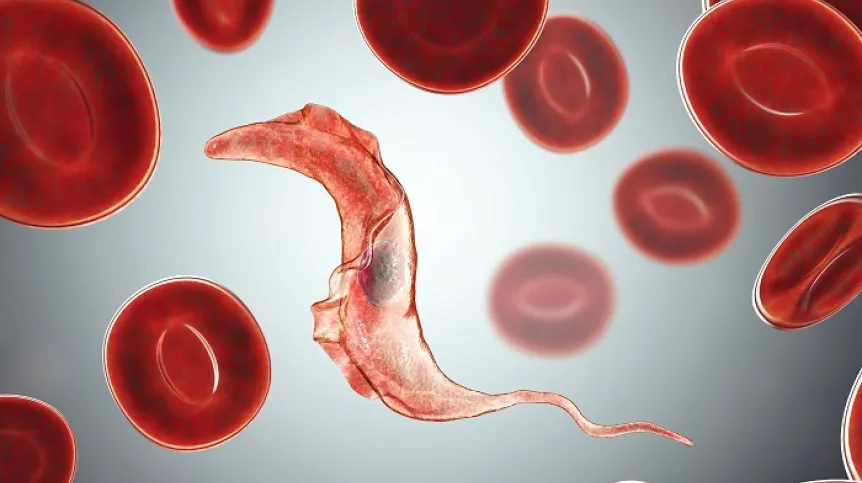
Researchers from Poland, Germany and Czechia are working on drugs against infectious diseases caused by trypanosomes. They will examine a specific enzyme of these single-cell parasites and propose 'drug candidates' better than those used so far.
According to the Polish National Science Centre, the project budget is nearly PLN 900,000.
Trypanosomes cause infectious tropical diseases. This is a big threat to people living in poor rural areas. Drugs used to treat these diseases have serious limitations: they are toxic, the parasite easily becomes resistant to them, or their action is not fully known, and therefore the drugs cannot be improved or adapted.
The scientists want to jointly test the possibility of designing new drugs based on the target, in this case the mRNA decapping enzyme ALPH1 found in trypanosomes.
In Poland, the project leader will be Dr. Maria Górna from the University of Warsaw Biological and Chemical Research Centre. She will collaborate with Dr. Susanne Kramer from Julius-Maximilians-Universität Würzburg in Germany and Dr. Martin Zoltner from Charles University in Prague (Biocev, Czech Republic Center for Research of Pathogenicity and Virulence of Parasites).
Dr. Maria Górna describes that trypanosomes cause disesase including human African trypanosomiasis (HAT), Chagas disease and leishmaniasis. WHO classifies these diseases as neglected tropical diseases. 'There are no drugs for effective, non-toxic and easy-to-use treatment of leishmaniasis and Chagas disease,’ says Dr. Górna.
Chagas disease affects approximately 8-10 million people and is responsible for 14,000 deaths, the researcher reports. Leishmaniases constitute a spectrum of diseases - from the usually self-healing but potentially disfiguring cutaneous leishmaniasis, the highly disfiguring mucocutaneous leishmaniasis, to visceral leishmaniasis, which, if left untreated, always leads to death. According to WHO, 600 million people are at risk of visceral leishmaniasis, and 50,000 to 90,000 new cases are reported annually, leading to 26 thousand to 65 thousand deaths per year.
Until recently, HAT treatment was based only on a few outdated and highly toxic drugs. The situation has improved with the recent development of new treatment regimens and new drugs, such as the recently approved fexinidazole against T. brucei gambiense. Nevertheless, the parasite can become resistant to fexinidazole and other nitroimidazole drugs.
All approved drugs against diseases caused by trypanosomes were discovered through phenotypic tests, and the vast majority of them are drugs with a changed purpose (previously developed for other indications). Their action is often completely or partially unknown, so the drugs cannot be improved or adapted to mutations that may cause drug resistance.
'The unique decapping enzyme found in trypanosomes, ALPH1, is an attractive target for developing a drug against trypanosomiasis for several reasons,’ Dr. Górna says, describing the alternative proposed by an international group of scientists.
Firstly, the ALPH1 enzyme is essential for trypanosomes. Decapping (removing the cap of) mRNA is the second key step in the mRNA decay pathway. Secondly, the entire family of ALPH1-like enzymes is not found in mammals. This reduces the likelihood that drugs will cause toxic side effects by affecting human proteins. Thirdly, the ALPH1 enzyme is already described in great detail, both in a biochemical and cellular context. It can be produced in bacteria as a recombinant protein in an active and soluble form. The activity of potential drug candidates can be tested both using purified ALPH1 protein and live parasites.
The scientists undertook a systematic search and characterization of inhibitors (substances that inhibit) the ALPH1 enzyme in trypanosomes.
The project received funding following an assessment by Deutsche Forschungsgemeinschaft as the lead agency in the Weave programme. The Polish National Science Centre and the Czech Science Foundation (GACR) accepted the results of this assessment and granted funding to teams in Poland and Czechia. (PAP)
PAP - Science in Poland
kol/ bar/ kap/
tr. RL













